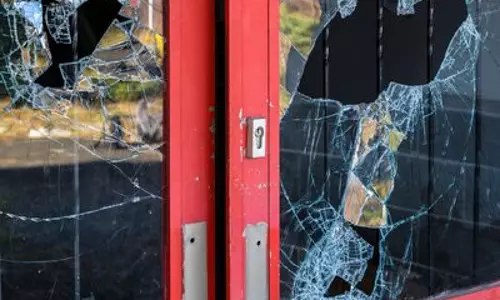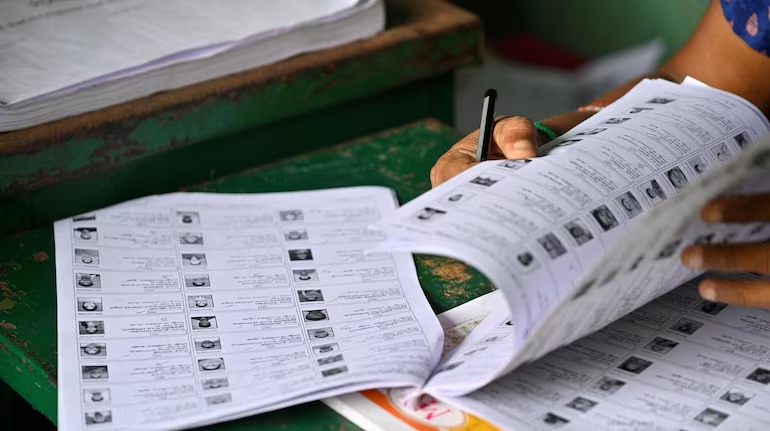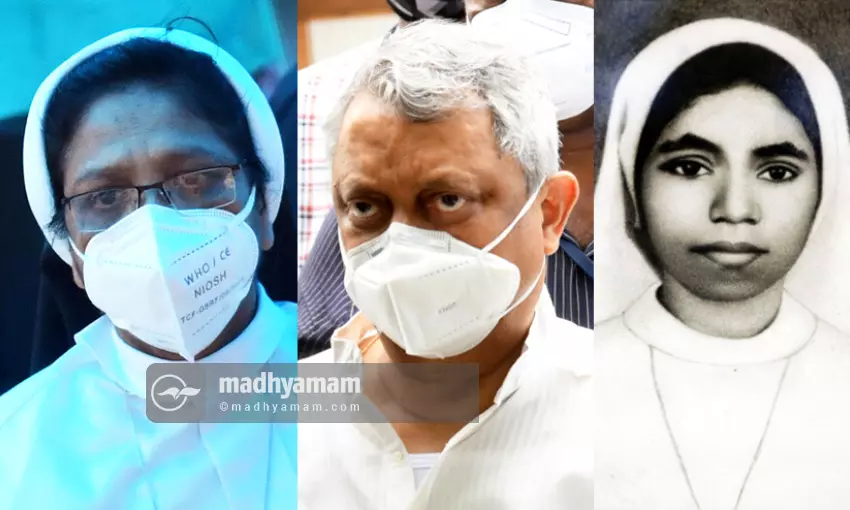
Justice that time had kept in store
text_fieldsThe crime of the murder dates back to 27 March 1992. The dead body of 21-year old 2nd year pre-degree student of BCM College, Kottayam, a nun in the St Joseph Congregation of the Knanaya Catholic order, was found in the well of the Pious X Convent in downtown Kottayam. Not only was a due inquest or evidence gathering not done, but even available evidence was destroyed and those who tried to bring up evidence were thwarted through coaxing, cajoling and threats, all in an attempt to hush up the inquiry to make the death pass off as a suicide. Consequently, an intervention by an action committee led by Jomon Puthenpurackal led to a CBI enquiry with a diligent involvement of the court.
It was following a petition by Abhaya's parents that the Crime Branch had taken up the case from the local police, but then it closed the case as one of suicide, but it transpired that even the Crime Branch was intent on not letting truth come out. And a police constable VV Augustin eventually became the fourth accused for having tampering with the inquest at the beginning. Superintendent of Police KT Michael, who meddled with the Crime Branch inquiry without any official role in it, also was incriminated for having tried to torpedo the case by destroying evidence. Such attempts to cover up the case continued throughout the investigation. What followed was a series of attempts to save those belonging to the church including priests, who had been under suspicion.
Once it was realised that an enquiry by state police would not get anywhere, the case was transferred to the central agency, the CBI, but even after that, interference continued to turn the case into one of suicide. The officer who had led the investigation team at the beginning, Varghese P. Thomas, had inferred that Abhaya was murdered. But under pressure by CBI's SP Thyagarajan, Varghese was constrained to resign from service with ten years of service left. Following this, the action committee approached the High Court and the SP was transferred to Chennai. The team that took over the case from that point confirmed that Abhaya's death was a case of murder, but the team could not locate the accused and tried to close it. Again came a court intervention that did not allow the investigation to wind up the case. Still there were two more submissions before the court to wind up the case, but the court rejected the plea in August 2006 and appointed a new investigation panel. That was how on 18 November 2008, priests Fr Thomas Kottoor and Fr Poothrikkayil along with Sr Sephy were implicated and arrested. The charge-sheet contended that since Abhaya discovered the illicit relations of the clergymen, who were the first and second accused, with Sr Sephy, they hit Abhaya with an axe on her head and then threw her into the well. For want of conclusive evidence, Fr Pothrikkayil was later discharged of the charge. The Crime Branch SP, who was served a charge sheet for having destroyed evidence, was also subsequently discharged without trial. The prosecution contention that the case is rarest among rare cases is absolutely right in the toppling of Abhaya case.
Even Abhaya's case is not free from the principle of the adage that justice delayed is justice denied. When the sentence was issued after almost three decades since the incident, Abhaya's parents who were tired of knocking on the doors of justice, were no more there to see the murderers being handed punishment. Still the judgment gives room for rejoicing to those who fought for the three decades to see the daybreak of retribution and those who pinned hopes on justice. An innocent girl, who had set out on a path of God for social and spiritual service was murdered by a few who were in fact bound to be her protectors. As such, what the ecclesiastical leadership was bound to do was to hand over the guilty to the arms of law and purge itself of the blemish. Instead, in its urge to whitewash the disrepute from the case, the church – which included Abhaya and complainants – chose to let down even its own laity. When the victims of crime were knocking on the portals of justice to open its eyes, on the other side was paradoxically a picture of pious prayers to save the guilty. Finally as a recompense for the the victim's tears, came the justice that time had kept in store. This victory of justice will only keep alive the hope with redoubled glory that truth will ultimately prevail over wealth and power.























